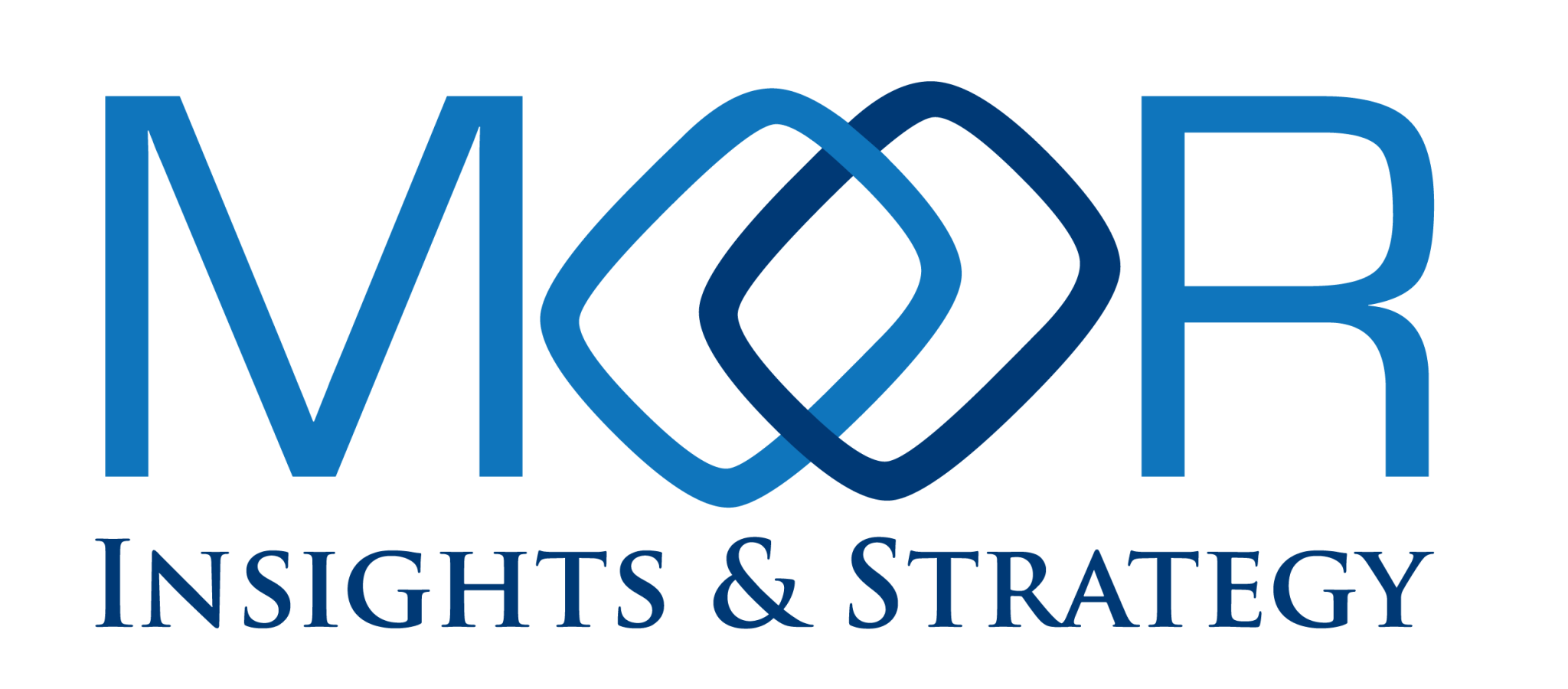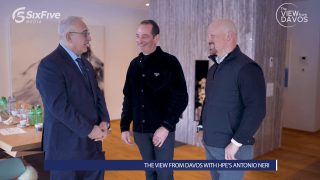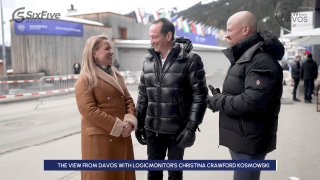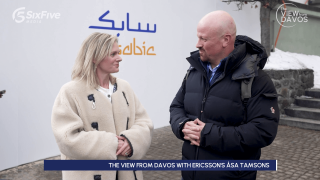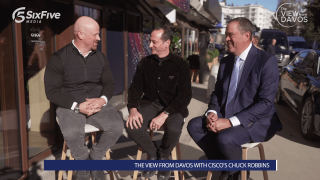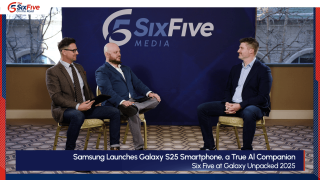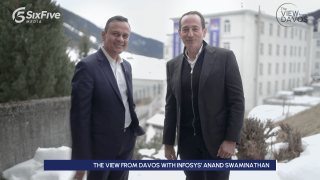The Six Five team discusses Automating Ports
If you are interested in watching the full episode you can check it out here.
Disclaimer: The Six Five Webcast is for information and entertainment purposes only. Over the course of this webcast, we may talk about companies that are publicly traded and we may even reference that fact and their equity share price, but please do not take anything that we say as a recommendation about what you should do with your investment dollars. We are not investment advisors and we ask that you do not treat us as such.
Transcript:
Daniel Newman: So, I don’t know if you out there if everybody was paying attention, but the International Longshoremen’s Association and the US Maritime Alliance, basically there was a strike that was it, for the East Coast and Gulf Coast ports. Okay, just to be clear.
What comes in on these ports? You’ve got fruits, you’ve got automobiles, you’ve got some electronics goods. By the way, not really toilet paper from what I understand. I understand that we actually did not need to go stock up on toilet paper, but there was a lot going on there. And effectively, this group was looking for something over 60% increase in pay. And this is the part that’s really interesting hopefully for our audience, Pat, is they wanted the guarantee that there would be no significant automation investments being made at our ports. Now, let’s think about this. Let’s back out for a minute and say, “Okay, so technology can meaningfully improve our supply chain,” right? This is really what’s going on here. In China for instance, they use 5G, IOT, AI, and they have almost fully automated parts of their ports.
Goods at that volume coming in, it can be done with very minimum human interaction, can keep ports moving, keep the containers loaded, unloaded, goods coming off. Pat, they want us to guarantee we’re not going to do that. And their President Harold Daggett was asking for a huge amount of increase. And to be clear, okay, these folks are making, they say about average of 150,000 a year. These are not low paid workers. So in the tentative agreement, by the way, they’re going to take it up by 61%. So these folks are going to be making potentially multi six figures as Longshoremen. And of course, really important job happen, Pat. What I wanted to zero in on with you was just get your take on this automation thing. My feeling is there is absolutely no way the US can keep up as one of the most technologically advanced nations in the world and at the same time run our ports manually.
I mean, you can do the parallel here, but this would be like never building gigafactories for automotive manufacturing. This would be like still canning bottles of beer by hand. I mean, the idea of doing things this way seems to me incredibly antiquated and highly risky, and it puts the US at a massive disadvantage. And so that seems to be the item with this tentative agreement that has not been fleshed out is whether or not this automation thing gets through, Pat. But just between us knowing that all the goods, all the GPUs that need to come in and out of the ports, everything else we’re trying to build, containers, full of automobiles. We cannot have a world in the future that doesn’t automate this stuff. What do you think is going to happen here?
Patrick Moorhead: So, I like history and we saw very similar things, I mean, on everything. Buggy makers, buggy tenders, right? We saw this in horses, we saw this in light bulbs. There used to be a group of people who would go in the city and they would light gas lamps, okay? And when you brought electricity in there, they didn’t need to do that anymore, and they went on strike and the whole city turned out. We saw this with elevators.
Daniel Newman: Don’t gaslight me.
Patrick Moorhead: No, I wonder if that’s part of that.
Daniel Newman: Actually, I wrote about it in my book, Human Machine. I could tell you more about that.
Patrick Moorhead: Nice, nice. Is it related to this topic?
Daniel Newman: Well, it was related to innovation and disruption and people-
Patrick Moorhead: No, let’s hear about it. I want to hear about gaslighting.
Daniel Newman: Oh, no. I mean, there was a period of time where every night there was gaslighters, gas lamp lighters, they would literally climb on ladders and they would light the lamps. And the belief at the time was that if we automated, or sorry, by putting in electricity, Pat, this would take away their jobs and they would have no opportunity to be employed. So, it goes back hundreds of years in technology. The belief has been by automating, innovating, advancing that we would somehow eradicate work. And so this is literally a parallel to that, and the term gaslighting has been suggested to have some historic context to that particular movement.
Patrick Moorhead: I love it. I never saw you as the history guy. I was always pretending to be one with all the books I read, but…
Daniel Newman: You just write books.
Patrick Moorhead: No, that’s good. We should write a book together.
Daniel Newman: Cheer, yeah.
Patrick Moorhead: We should do that. I think you and I need more things to do. So anyways, a lot of historical context, nobody should be surprised. And by the way, you’re going to see a lot more of disruption as soon as even more Gen AI kicks in. You might see some new types of unions that are kicked off between administrative assistant union or accounting union. This is the type of things that come with technological disruption. But it’s a very good example. I think what nobody appreciated was we had a major storm coming in with hundreds of people dead and they’re going to cut off port support in Florida. That does not give unions a good name out there. And that really, I think made an impact on the common person.
Daniel Newman: By the way, have you seen the compound of Harry Daggett? They’ve spent all over the internet. This guy makes a million dollars a year, he drives a drop-top Bentley, he’s got a 74-foot yacht. By the way- I’m not pure capitalist. I’m not upset for people being successful by any means. That’s feels like a lot of the politics of the world today with really, really wealthy people telling less wealthy and how they’re supposed to feel about things.
Patrick Moorhead: It is interesting, for sure.
Daniel Newman: But yeah, I mean look, I think in the end from a historical context, Pat, the US cannot afford to play and take a back seat and allow technology to surpass us. We need these good services to move. And again, this is by the way the ability for a group to strike and take down the system. To me, I don’t know about you Pat, but that’s a reason to automate. I mean, when people use a symmetrical power to potentially bring down society. I mean, did you hear… I heard comments like, “By the second week, people won’t be able to get this and by…” There was some very sort of-
Patrick Moorhead: Threatening.
Daniel Newman: Yeah. I mean, it was very teamster or whatever, and it’s sort of mechanics. But anyway, all right buddy.
Patrick Moorhead: You remember what happened when the airline folks went on strike, Reagan came in and fired them all and brought in the military to run it. And the president does have the powers to do that. One final thing, Screen Actors Guild in their contracts wanted to talk about likenesses rights about that. So, just a different variation of it.
